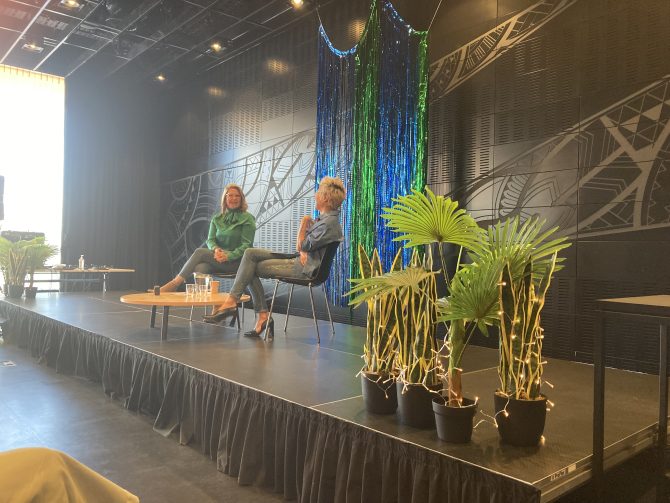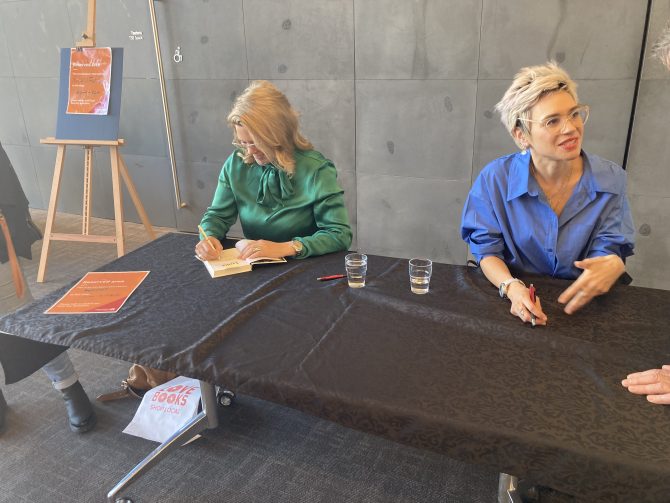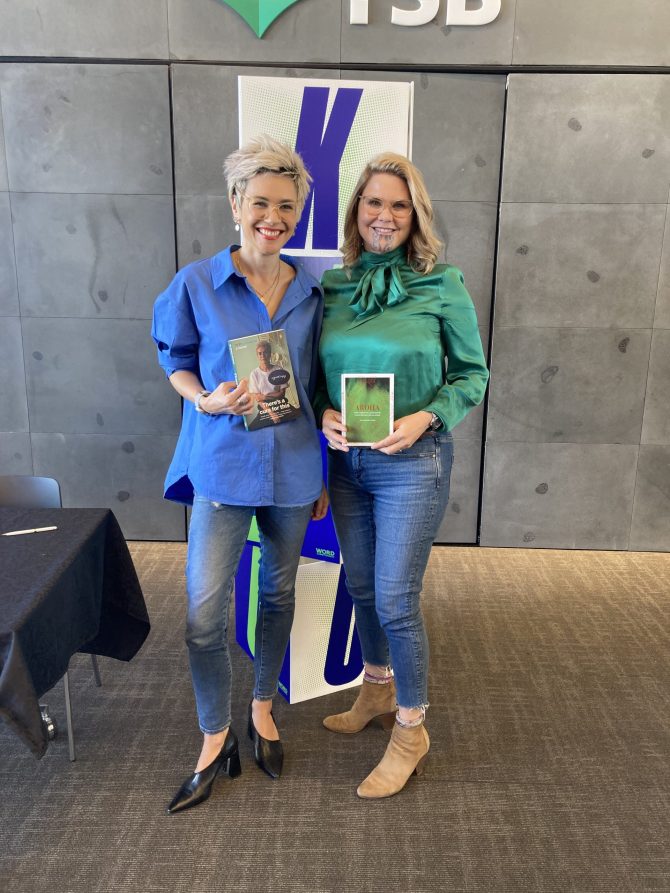On this fresh, late-winter Saturday morning there was an excited buzz in the room, heavy with anticipation for the upcoming Word Christchurch event – Dr Hinemoa Elder and Dr Emma Espiner: Making it Better. The room quietened as Steph Walker, the Executive Director, introduced these two phenomenal women who we had all come to see. She explained the decision to forgo a host, unusual for such events, with the idea of letting the conversation flow between the two instead. Later, Espiner alludes to this being due to their influence rather than WORD’s, inspiring chuckles among the crowd.
Elder opened the session with a beautiful waiata with the most stunning of singing voices, sending shivers down my spine. And so began an intimate chat, she quipped, with so many people.
When the topic of Espiner’s memoir, There’s a Cure for This, came up, she explained that she had always wanted to write a book, and a mixture of feeling that things were changing, a bad memory, and wanting to capsule-ise that time of her life (at medical school in particular), led to writing the memoir. A way of memoralising that time, she explained, even if it was in the most stressful way possible. Cue, crowd laughter.
“There are moments in life where you can feel the transformation happening.”
Elder and Espiner discussed medical school throughout the talk, at different times both describing it as a punishing experience. Elder acknowledged that it has changed since she was at medical school, it has become more gruelling, and that she uses her experiences working in the profession to help the new doctors coming through. One important thing for her is to empower women to have voices, through her work but also her books as well, as growing up women were often left out of important conversations.
Espiner mentioned internalising these experiences and feeling like it’s yourself that’s not resilient enough, when “actually the system is f****d.” And Elder’s perfectly toned response: “indeed.” Cue, more laughter.
The conversation indeed flowed seamlessly, as Walker touched on at the beginning, easily moving between topics and issues, some more heavy than others. A running theme, as can be imagined, was how to improve the medical system. This ranged from needing to “take people with us” (referring to the colleagues that care about equity and their patients), and utilising the privilege they already have; to taking collaborative notes (as opposed to individual notes); and the importance of self-care rituals (rather than “resilient workshops” or “pizza Fridays”). Speaking in Te Reo Māori with patients was actually more efficient and accurate, leading to different, more effective outcomes; and using collaborative notes, rather than individual ones, and focusing on a collaborative model would make more sense. Currently our health system is set up for individualism, and that is limiting.
The kōrero between these two incredible, inspirational wāhine toa was entirely captivating and the time sped by. It was the perfect balance of humour, heartfelt, real, and raw. They opened up to questions at the end, and when asked about how as allies we can help challenge the entrenched, misguided (even racist and sexist) ideas of friends and family members, Espiner responded with both “we love you”, and after referring to the quote ‘when you’re accustomed to privilege, equality feels like oppression’; “Tell them that.” I felt this summed up the essence of the event perfectly.
Teresa
Fendalton Library
Find out more
- WORD Christchurch website and 2023 programme
- Follow @WORDChCh on Twitter
- Follow WORDchch on Instagram
- Like WORD Christchurch on Facebook
- Our WORD Christchurch 2023 page






Add a comment to: WORD Christchurch 2023: Wāhine Māori making it better